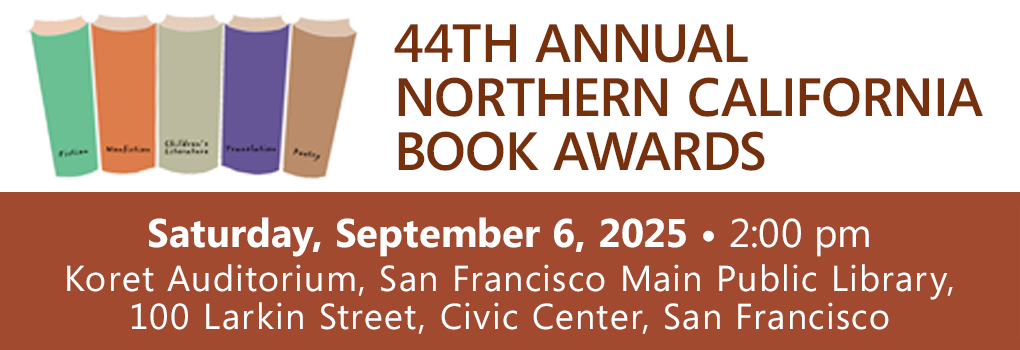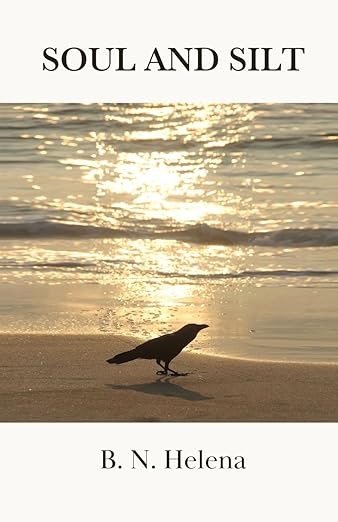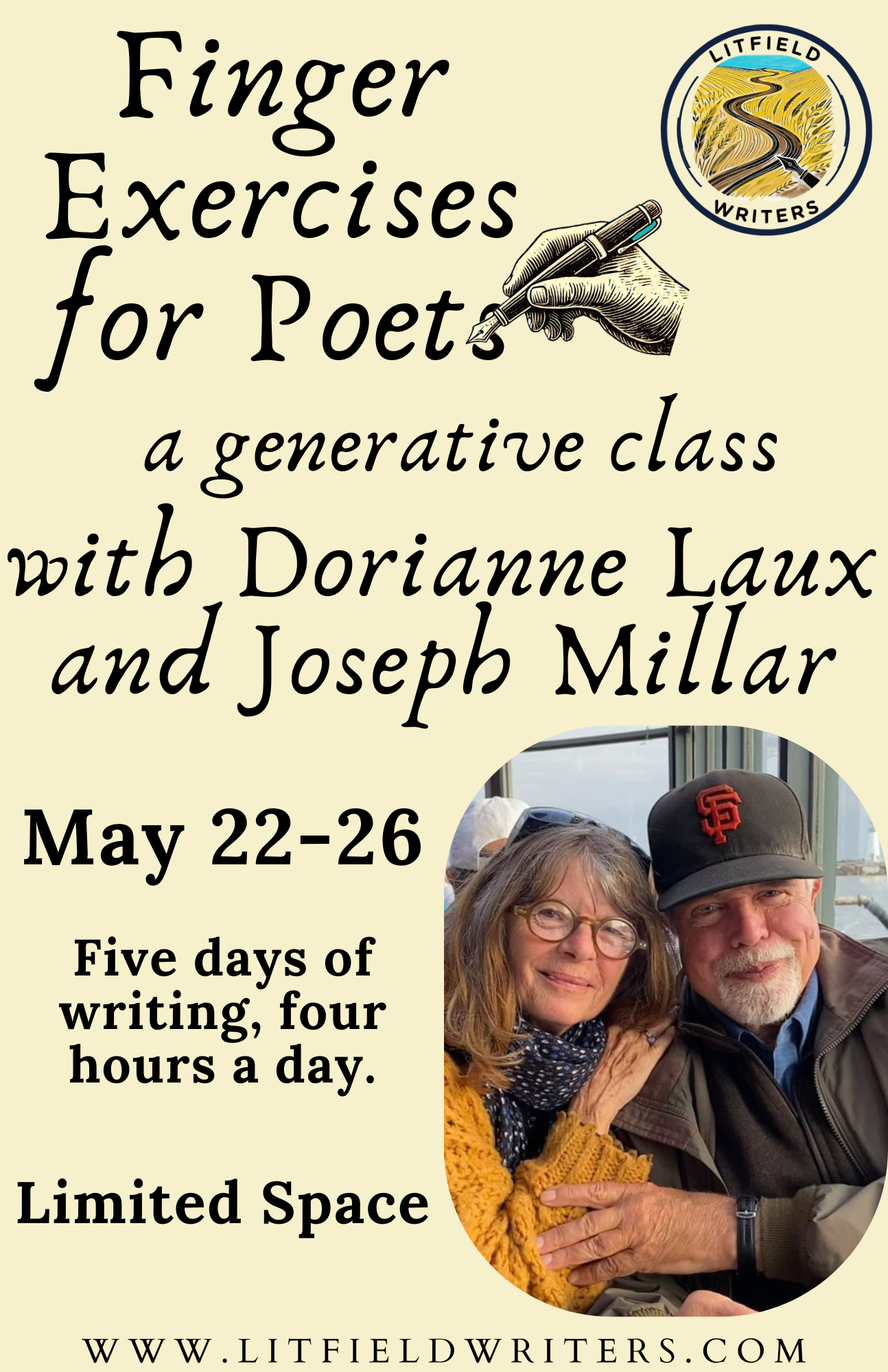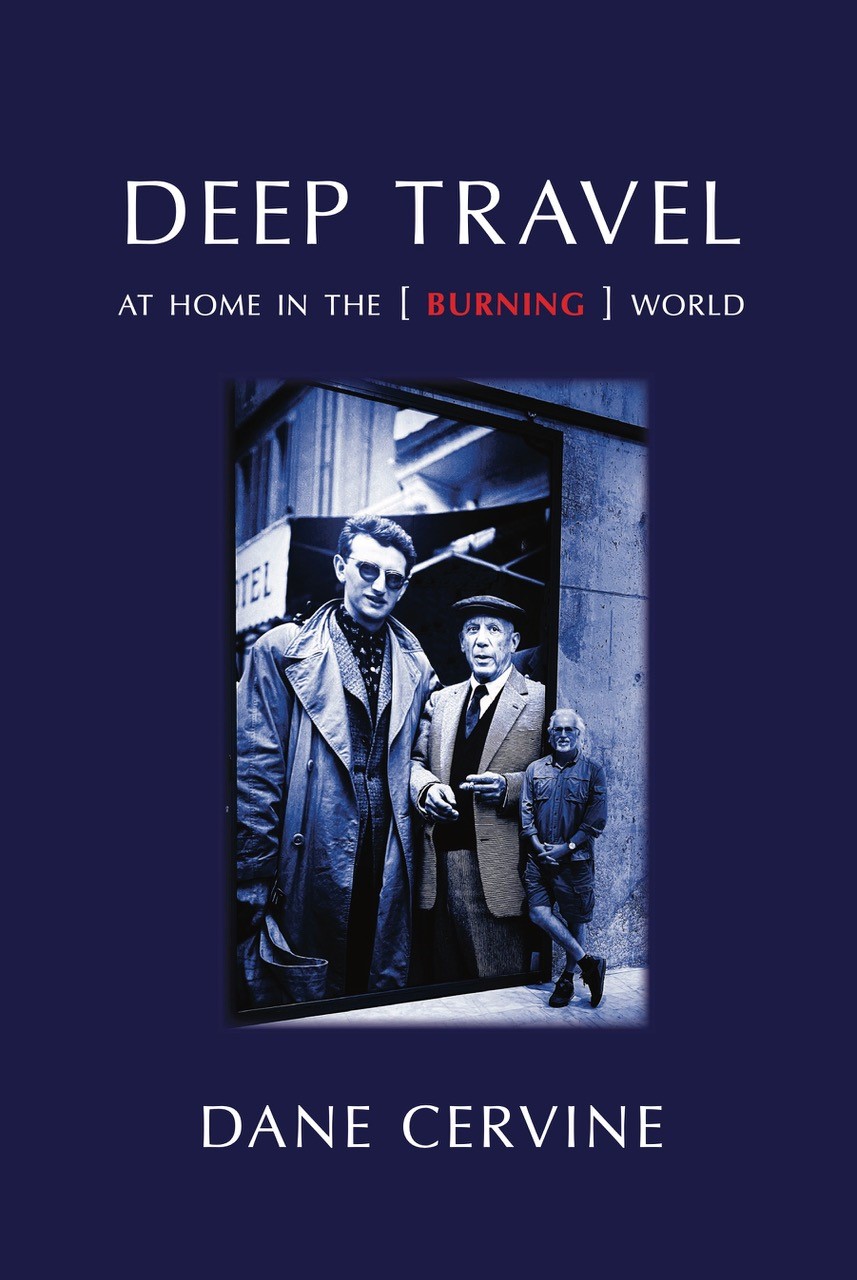
Between Flow and Shape
by Tom Goff
Creativity: Where Poems Begin, Mary Mackey, Marsh Hawk Press, New York, 2022, 110 pages, $18.00 paperback, https://www.spdbooks.org/Products/9781732614123/creativity-where-poems-begin.aspx.
POET AND NOVELIST MARY MACKEY'S Creativity: Where Poems Begin is both effervescent and analytical. Her new book serves as part memoir, part guide to the "inner poet" in her readers, part wisdom literature; but ultimately, Creativity resists easy classification or precisely limited function, and that resistance is a virtue. Mackey writes:
Poetry chose me; I did not choose it. Call it an involuntary act of creation, a constantly surprising connection between self and non-self, a movement from seen to unseen and back again. Call it at its best moments the movement of an adult mind back to the radical innocence and vision of the very young child who sees, not only the reality we all share, but all those unnamed, unclassified parts of reality we learn to overlook as we grow older.
(page 9)
Mackey celebrates the work of involuntary creation, of paying close attention to the details of existence while irradiated by promptings from uncanny sources we recognize only by intuition. At first, these promptings from outside the self sound quite "New Age," but her account of her childhood visions reminds me of mysteries poets have often intuited, as in Wordsworth's "Intimations of Immortality":
The Soul that rises with us, our life's Star,
Hath had elsewhere its setting,
And cometh from afar:
Not in entire forgetfulness,
And not in utter nakedness,
But trailing clouds of glory do we come
From God, who is our home…
(Ode: Intimations of Immortality from Recollections of Early Childhood, by William Wordsworth)
Mary Mackey must have been destined for poetry and story from the beginning. At the age of eleven, she could already write like this:
Blown high on the wind unfurled
Gathered in masses of light
Softly through their numbered twirls
The autumn leaves in flight.
Reds and yellows, pastels soft
Shapes obtuse and congruent
Blown high on the wind aloft
Motions precise yet fluent.
("The Geometry Lesson," page 31)
The poem is remarkable for melding dry leaf-shapes adrift on the wind with the concepts and formal attributes of geometry. The last line's two adjectives, precise and fluent, already crystallize the extreme oppositions, stasis and mutability, which will become central to her work. The poem also signifies her openness to the best of her teachers and to her surroundings: it was inspired by an actual geometry class.
The precocity displayed in the poem might evoke a childhood fresh from the "clouds of glory," making her a proper child of Wordsworth's age. Yet in Mackey's telling, her journey toward mastery of poetry and fiction was not derivative but highly personal, idiosyncratic. Her words make it clear that she arrived at her discoveries independently:
My memories go back a long way, too long to be true, people tell me. And yet they are there, stored in a wordless space in my mind, because they came before words, existing in a place that someday I will come to understand is the source of my poetry, perhaps the source of all poetry. It is a country without borders, a place without language, a universe that has not yet been talked into being.
(page 11)
She elaborates this idea:
For an infinite period, I rest outside of time. There are colors, forms, sounds, smells, but they sweep through me undifferentiated and unrecorded. Every moment is new. Nothing makes sense, but this does not bother me, because I have no expectation that it should. I feel pleasure but do not grasp at joy, because I have no sense that joy is finite. I feel pain but do not fear suffering, because I do not yet know that pain can persist, grow worse, or return.
I float in the material world as I floated in my mother's womb: conscious and unconscious at the same time. I float in infinity, and it is beautiful. What a pathetic word to describe such greatness. "Beautiful?" Say rather "ecstatic," and even that does not begin to capture the bliss of it.
(page 11)
Then, bit by bit, the future poet tests the material world, acquires language. Fantasy absorbs her in free play: does a hippopotamus eat a Popsicle, or can a Popsicle swallow a hippo? These eloquent passages invite us into a much older conversation, the inquiry whether we enter the world as "blank slates" to be "written upon" by experience, or whether we come already well equipped to send, receive, and absorb the world's messages. However, over and above the infant equipment her birth and childhood gave her, Mackey believes illness was an unlooked-for godsend; she describes running life-threatening fevers, as high as 107 degrees, and the visions that followed:
As I lay on that green couch, a warm golden light—the kind you only see for a few moments at sunset—flooded the living room. My parents moved toward me so slowly that I could see their clothing billow out and collapse in an invisible wind. Bending over me, they lost their faces and floated toward the ceiling like huge birds. The Coke bottle on the coffee table multiplied into dozens of Coke bottles, which flew up and circled in a huge glassy aura over their heads.
Light weaved around the molding and splayed across the ceiling like spilled glue. Behind my parents' heads, the golden light turned into a veil composed of long, multi-colored ribbons that danced in an invisible wind. The veil expanded, consuming the green couch, the blankets, the windows, and my parents. Suddenly it parted, and I saw trees with red and gold leaves (impossible because it was the dead of winter), and little children holding out their hands and calling to me to come play with them.
(page 21)
If I understand Mackey's implications, these early health crises endowed her with a vision of her own, a rare ability to appreciate the natural world for the separateness of its components—transcending the normal impulse, or instruction, to classify the world, group things together, generalize about "nature" and structure. Once again, a reader may be reminded of a philosophical conversation, or one side of it: Nietzsche's exasperation with the conventional mind that cannot comprehend separate leaves on a tree as distinct entities, or cannot discern individual humanity in the definitional morass of social rank or stereotype.
Mackey expands upon this idea, adding that, like the rest of us, she eventually had to screen or gatekeep against the onslaught of sense impressions for her writing and her concept of selfhood to cohere. She recognizes that a command of words requires certain tradeoffs, a barter of fresh perceptions for a set of stock words with which to describe the perceptions. (This insight is what Samuel Johnson means when he suggests that "words are the daughters of earth, and that things are the sons of heaven.") In any case, Mackey retains an unusual talent for noticing the disparities we routinely ignore within classes of natural objects and life forms, and knows how to record those distinctions without compromising the clarity of her poems. Yet she writes:
…Most of all, I needed to become oblivious of and unresponsive to the immense amounts of sense data that constantly competed for my attention.
My brain, restructured to a large extent by the language and the culture into which I was born, became that filter. Freed from a constant bombardment of information, I embraced an attenuated consciousness of reality and became a normal, sane adult human being. The price I paid for this was to become blind to much of what surrounded me.…
(page 15)
Perhaps it's only in the highest extremes of fever that these amounts of data recede into an amorphous oneness, "undifferentiated and unrecorded," as she has said. Or Mackey has moments like most of us when we have to let the too-muchness of life slip away for sanity's sake. She can relax her filtration system when bent on composing a poem:
When I write a poem, my mind continues to move fluidly between the real and the surreal. I experience ordinary, plain, unadorned reality; and at the same time, I see the alternatives that reality offers, the dream-like possibilities that cluster around objects, the barely-conscious connections between words, images, scents, sounds, and touch. I can look at a bowl sitting on a table and see it simply as a white china bowl; but at the same time I can see it—as I have written in my poem "The Breakfast Nook"—as "a white sound / swirling into a depression / of unspeakable depths."
(page 15)
There is more description of this poem in process, which deserves reading in full; gripped in the spell of creativity, she can take the most humble household object or natural entity and reshape it into a metamorphic vessel of departure. Then, by reverse operation, she "approximates the remote, and familiarizes the wonderful," as Samuel Johnson said of Shakespeare.
A room can be thus reshaped, as in a verse passage, into one of the poetic epigraphs that precede each chapter:
a cama vira/ the bed turns over
o quarto vira/
the room turns over
look how quickly
we can fall
into darkness
("Vertigo," from The Jaguars That Prowl Our Dreams, by Mary Mackey)
Like all poets, Mackey had to develop—in her case, develop despite the obstacles then thrust in every young woman's way: she details her struggle for an education at Radcliffe, where she was treated as a Midwestern outsider, on top of the standard misogynist discrimination against Radcliffe women, who were denied the perks available to any lout at the males-only Harvard close by: a woman student could not enter the Lamont Library, but was told a boyfriend could check out the necessary books for her, and women were routinely excluded from readings by famous poets at the Woodberry Poetry Room. Mackey adapted to the surroundings, writing a poem—imitated from Wallace Stevens and other male poets—that was published by the Harvard Advocate. But rather than go on imitating, she thrived from the exclusion, free to conceive what a truly personal style would be like.
There is an interesting forward-pressing tension in Creativity, as Mackey evolves a writer's life, accepting such mentors as honors tutor William Nestrick and the pioneering ethnobotanist Richard Evans Schultes, whose classroom introduces her to the hallucinogens of the Upper Amazon and elsewhere (ayahuasca, Datura, Zacatecichi, and more)—for study, not for consumption. Schultes is a benign presence in the book, as, finding he and Mackey share an interest in Charles Dickens, he invites her to a Dickens birthday celebration in Boston's Old North Church (in a delightful passage). Schultes hires her for an assistantship in the Harvard Botanical Museum. All this is good, and well described, though the effect is to accentuate the role of the male preceptor.
While handling and evaluating remarkable exhibits, Mackey awakens to the resemblances between her early fever dreams and the descriptions of effects induced by these hallucinogens and other exotic substances. She contemplates, then undertakes a series of trips, first to Costa Rica, then to Brazil, and comprehends how important risk is to her writing. She sees jungle and rain forest where beauty and disease coexist, and a single human life is of small consequence. In her new vision, the Biblical aphorisms about dominion over the Earth and animals become nonsensical. In short, Mackey finds a world that answers to her need for the uncentered, the unconfined.
Not that the only force within Mackey is centrifugal, flying away from integration; it is fascinating to see a counter-impulse toward the centripetal, a clenching inward, re-ordering the separate pieces she has made of the vast reality. One of her epigraph-poems exhibits this tendency. Here is a portion of it, harking back to her travels:
O mundo do rio
the world of the river is not the world of the bridge
not the world of memory
não o mundo do passado not the world of the past
não o mundo da saudade
not the world of longing (from "Fado Tropical," Sugar Zone, page 45)
The title alludes to the popular Portuguese musical genre, fado (from "fate"), generally concerned with melancholy or longing ("saudade"), but the "Tropical" in the title indicates that this saudade is by way of Brazilian Portuguese. The point here is that, instead of alternating English phrases with untranslated fragments of Portuguese—as a code-switching Latinx poet might do—Mackey is providing the complete translations. The gesture might be one of neatness, completion, as well as courtesy to the reader, a concept earlier Modernists would have bridled at. Such a courtesy tells us improvisation is not all, and this trait of Mackey's is evident from then till now.
By this point in the narrative the forces and talents within the writer have achieved a certain critical mass, and her momentum carries the reader. Mackey will still face many difficulties‐academic writing seems to have stiffened the inner poetic voice; she struggles to find work teaching in California; she endures poverty in Berkeley during the Vietnam era, as the tear gas sprayed by cops at students permeates her apartment—but we feel that great breakthroughs are just ahead, and we are not disappointed. She connects with the Berkeley scene (including Cody's Books on Telegraph Avenue), and begins an imagistic, psychologically adventurous novel crafted around experiences in the jungle. The wild scenery proliferates, yet characters and themes come gradually into focus. Rejected by various publishers, the book, Immersions, is published by Shameless Hussy Press in 1972. Mackey's career as poet, novelist, and professor blossoms, and she finds important women allies. (She embarks on a decades-long career as a distinguished professor at Sacramento State University.)
What I like about Creativity is that it doesn't pretend to be an explicit work of instruction, a how-to for poets. Rather, it is a crisply worded narrative, at times a bit conventional in its chronology, but it puts up spirited resistance against easy classifying, and that is its consistent lesson for the developing poet or novelist—find your own off-road, meandering route to creativity. The reader feels an odd sensation, of meeting a writer whose distinctive note is free flow, untethered creativity—yet the fierce discipline shapes the fever dream. Freedom emerges lastingly formed in and through its own spontaneity.
Thus the lengthening stretch of Mackey's career becomes an ouroboros, a rain-forest World Serpent circling back on itself. The impression may reflect what D.H. Lawrence meant by his famous phrase, "We have come through!" The epigraphic poems are lively, some of them segments from longer sequences or whole books. As Creativity is a fairly short work, I would have liked to see a supplemental section of poems added; the epigraphs are well chosen but their potential impact is a bit dissipated by the impulse to skip to the prose chapters—the verse would benefit by being seen for itself, as well as complement the narrative wisdom. I also wonder if Creativity is Section One of a continuing autobiography—I'd certainly want to read it.
A final thought. Intrigued by Mackey's reference to a process of hers—closely observing a familiar object till its familiarities fall away, and the strangeness of its surface appearance renders it surreal—I tried applying the technique to the book's cover photo of rain forest plant life and found it didn't work for me (I had considered opening this review with the result). Not that the idea would never work; but the experiment helps confirm how inimitable is Mackey's way of perceiving the world. Again, this book invites the reader toward open-ended creativity, and is the polar opposite of a paint-by-the-numbers approach. Creativity implicitly urges the reader to stay receptive and persist through all the doubts, distractions, and "failures" to success, whether the rewards are small or big. ![]()
Tom Goff is the author of four poetry chapbooks, including Twenty Two (little m press) and Sinfonietta (Rattlesnake Press). He has degrees in trumpet performance from Sacramento State University and the San Francisco Conservatory, and has performed with such ensembles as Golden State Brass and the Auburn and Camellia Symphonies. He lives in Carmichael, California.
— posted JANUARY 2023







































 So Far So Good: Final Poems, 2014-2018
So Far So Good: Final Poems, 2014-2018  Abandoned Poems
Abandoned Poems 















 Mississippi
Mississippi 



















































































